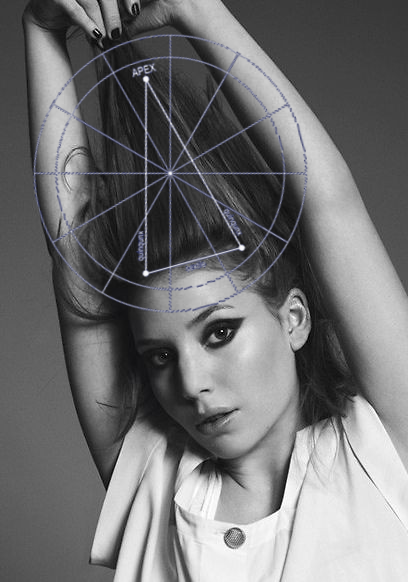
Jupiter-Saturn: The Social Planets
 In astrology, Jupiter and Saturn are believed to influence how we connect socially with the world. Jupiter, the “benific” planet, is seen as promoting expansion, growth, and opportunity. It represents prosperity, not just material, but also in personal and intellectual realms. When Jupiter transits personal planets in an astrological chart, it signifies a surge of enthusiasm and a desire to learn and grow. We could be presented with new opportunities to explore our interests and broaden our horizons. Jupiter is often referred to as the “benefactor” planet. Its transits can bring a sense of optimism and good luck. We might find ourselves attracting positive experiences and resources that support our development. Jupiter’s influence can boost our confidence and make us feel more generous. We might be more inclined to help others and share our good fortune. The specific zodiac sign and house where Jupiter resides offers clues about where we might experience personal and professional advancement. Jupiter acts as a guide, pointing towards the realm in which our talents, ambitions, and potential for success can be best expressed.
In astrology, Jupiter and Saturn are believed to influence how we connect socially with the world. Jupiter, the “benific” planet, is seen as promoting expansion, growth, and opportunity. It represents prosperity, not just material, but also in personal and intellectual realms. When Jupiter transits personal planets in an astrological chart, it signifies a surge of enthusiasm and a desire to learn and grow. We could be presented with new opportunities to explore our interests and broaden our horizons. Jupiter is often referred to as the “benefactor” planet. Its transits can bring a sense of optimism and good luck. We might find ourselves attracting positive experiences and resources that support our development. Jupiter’s influence can boost our confidence and make us feel more generous. We might be more inclined to help others and share our good fortune. The specific zodiac sign and house where Jupiter resides offers clues about where we might experience personal and professional advancement. Jupiter acts as a guide, pointing towards the realm in which our talents, ambitions, and potential for success can be best expressed.
Jupiter’s counterpart, Saturn, takes a stricter role in astrology. Nicknamed the “Taskmaster” or “Lord of Karma,” it defines the rules and limitations that shape society. It embodies structure, discipline, and responsibility, acting as the enforcer, ensuring we follow established norms. Saturn’s influence pushes us to persevere and work hard, building the foundation for self-control, self-respect, and wisdom gained through experience. When facing Saturn’s challenges, we have the chance to become self-sufficient and learn valuable life lessons that fuel our personal growth. Saturn transits often bring periods of increased duties. It’s a time to step up and take ownership of our lives.
We might encounter challenges that force us to learn valuable lessons about self-reliance. This could involve setting goals, making decisions that align with our goals, and taking action to achieve our dreams. These transits can push us to build a strong foundation for our future, focusing on practicality and stability.
In astrology, Jupiter and Saturn paint a fascinating picture of personal and social development within an individual’s birth chart. Jupiter, the expansive force, fuels our desires to make positive impact. It’s the boundless energy that seeks to break free and make a difference. On the other hand, Saturn, the “the pragmatic deity,” reminds us of responsibility, discipline, and the importance of established structures. It sets the boundaries within which this growth can occur. This interplay is a constant dance: Jupiter pushes us to reach for the stars, while Saturn ensures we have the foundation to climb.
Saturn, the builder, lays the foundation. Its restrictions and rules act as the framework, providing the structure and stability that societies and our own lives need to thrive. This allows us to reach our full potential and achieve our goals. These boundaries offer a sense of stability and predictability, essential for collective progress. Without them, chaos could erupt, threatening the very fabric of society. Jupiter, in contrast, ignites our thirst for exploration and pushes us to reach for new horizons. In societies, this translates to a constant drive for improvement and advancement, benefitting all of humanity. Similarly, in our own lives, Jupiter symbolizes the desire to expand and grow, preventing us from feeling stagnant.
Imagine Saturn as the sturdy container that allows for growth. Its boundaries provide the support needed for Jupiter’s expansive energy to flourish. Without these limits, progress could become unfocused. On the other hand, without Jupiter’s relentless push for progress, societies (and individuals) could get stuck in a rut. This constant interplay between structure and expansion is what keeps us growing and evolving within a stable framework.
Civilizations thrive on expansion (Jupiter) pushing them forward, while limitations (Saturn) keep them grounded. Both planets play a role in the growth and sustainability of civilization and individual lives.
“In psychological astrology, the planets may be divided into three groups. The first group consists of the basic personal factors: Sun, Moon, Mercury, Venus, and Mars. These planets show what forces we can consciously direct or modify to some extent. These planets characterize the more obvious personality traits and strongest urges in the individual. Everyone experiences a sense of individuality and self-identity (Sun), a way of reacting spontaneously based on conditioned responses (Moon), an ability to reason and to exchange thoughts with others (Mercury), a need and capacity for love and close relationship (Venus), and a drive toward action, self-assertion, and sexual experience (Mars). Underlying these basic personal factors are the deeper motivational and collective factors symbolized by Jupiter and Saturn. Although these two planets can be said to represent specific urges, they also indicate deep states of being experienced as superconscious (Jupiter) or subconscious (Saturn) needs. Their collective significance refers to their impact on how one wants to participate in the world at large and in relation to social activities. These planets represent the deeper currents of stability, tradition, and safety (Saturn) and future aspirations, sense of adventure, risk-taking, and personal growth (Jupiter).” Astrology, Psychology, and the Four Elements: An Energy Approach to Astrology and Its Use in the Counseling Arts



















 Venus in the 5th House
Venus in the 5th House
 The Progressed Moon Aspects Pluto: Emotional Déjà Vu — Haven’t We Screamed Here Before?
The Progressed Moon Aspects Pluto: Emotional Déjà Vu — Haven’t We Screamed Here Before?
 Venus Conjunct Pluto: The Love You Can’t Escape
Venus Conjunct Pluto: The Love You Can’t Escape
 Saturn in the 4th House: Security Is an Inside Job
Saturn in the 4th House: Security Is an Inside Job
 Uranus Transits: 1st House: Winds of Change:
Uranus Transits: 1st House: Winds of Change:
 Mars-Pluto Synastry: Something Quite Dark and Dangerous
Mars-Pluto Synastry: Something Quite Dark and Dangerous
 Mars-Pluto Aspects
Mars-Pluto Aspects
 Moon Trine Neptune Natal Aspect: Angel in the Waters
Moon Trine Neptune Natal Aspect: Angel in the Waters
 Sun Conjunct Neptune Synastry
Sun Conjunct Neptune Synastry
 Moon Trine Pluto Synastry
Moon Trine Pluto Synastry
 The Watery Gardeners: Cancer, Scorpio, and Pisces
The Watery Gardeners: Cancer, Scorpio, and Pisces
 The Evolution of Sun Square Pluto
The Evolution of Sun Square Pluto
 The Saturn-Neptune Square in the Artist’s Psyche
The Saturn-Neptune Square in the Artist’s Psyche
 Composite Moon in 8th House
Composite Moon in 8th House
 Pluto in Libra in the 2nd House: Lessons on Self-Worth and Financial Independence
Pluto in Libra in the 2nd House: Lessons on Self-Worth and Financial Independence
 Neptune in the 12th House
Neptune in the 12th House
 Charting Domestic Changes: Home and Family Moves
Charting Domestic Changes: Home and Family Moves
 Venus in the 8th House: A Deeper Love
Venus in the 8th House: A Deeper Love
 Uranus Transits the 5th House: The Journey of Self-Expression
Uranus Transits the 5th House: The Journey of Self-Expression
 The Yod Aspect Pattern: The Mystical Power of the “Finger of Fate”
The Yod Aspect Pattern: The Mystical Power of the “Finger of Fate”